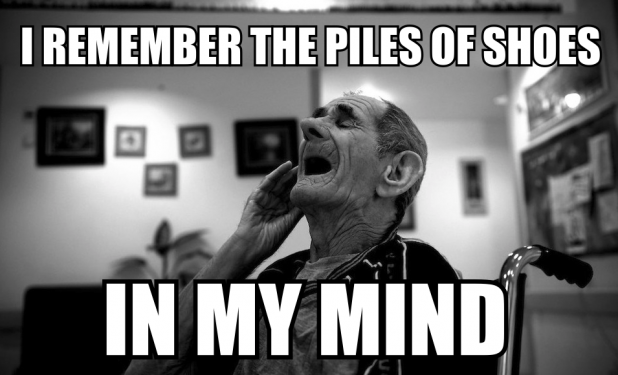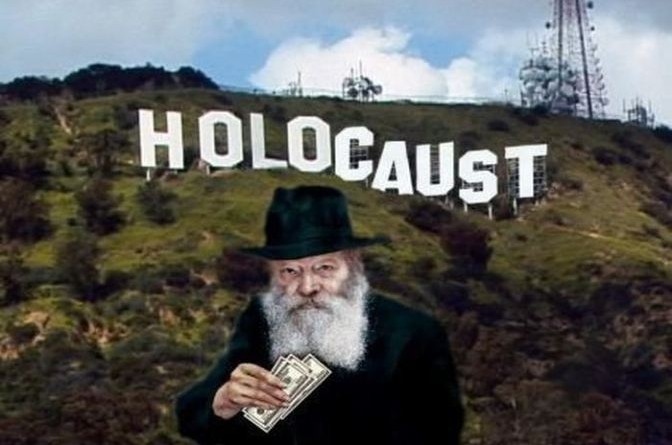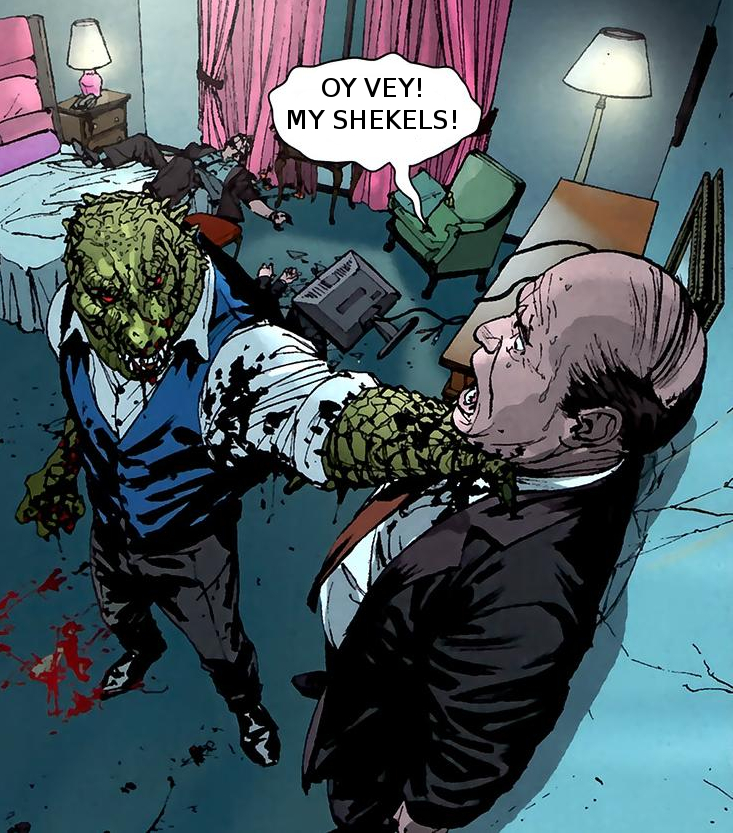Andrew Anglin
Daily Stormer
September 29, 2015

It’s that time of year again, you stupid goyim pigs, when you can all go and pay money to feel bad about the imaginary gassing of sixty trillion imaginary Jews by Adolf Hitler.

Don’t forget to spend $40 extra on popcorn and soda as you sit in a theater and cry your eyes out about the evil gassings your ancestors did, but which did not actually happen!

Isaac Zablocki, who was chosen by God to rule over you filthy goyim pigs, explains just what sort of techniques will be used to make you feel guilty about this fake event in The Huffington Post:
Every few years I am inspired to take a look at the changing trends in Holocaust related cinema. This Fall/Winter season brings another excellent crop of fascinating films that bring new perspectives to how the Holocaust is presented in widely-released movies.
For some years now, it has been rare to find a classical telling of the Holocaust on the big screen. New perspectives and humanizing directions have taken the front seat for mainstream releases, replacing the classic black-and-white re-tellings of the Holocaust and keeping its lessons relevant. Films that investigate the German perspective of the Holocaust have become newly popular. The Decent One (by Vanessa Lapa), a groundbreaking film released last year focused on the letters that Heinrich Himmler wrote to his family and beloved. This perspective brings an unprecedented humanity to a man known to be one of the most notorious monsters in history.
For those unfamiliar, here is a photograph of notorious mega-monster Heinrich Himmler, gasser of bajillions of innocent and unsuspecting Jews.

This real documentary photograph was confirmed to be 100% authentic and real by communist Jews during the Nuremberg trials.
This November, we can see Oscilloscope’s release What Our Father’s Did: A Nazi Legacy, directed by David Evans, about the meeting of two sons of Nazis who carry the sins of their fathers on their shoulders. The guilt and perplexed perspective of the second and third generations is a strong theme in films that attempt to keep the Holocaust relevant.
Goyim, let’s just be frank about this: we are now making movies specifically designed to make second and third generations feel guilt about these alleged gassings. We might as well just go ahead and tell you that in the Huffington Post, because you won’t do anything about it anyway.
The ultimate film focusing on the post-war German perspective and guilt is Germany’s selection for this year’s Oscar race, the upcoming Labyrinth of Lies, directed by Giulio Ricciarelli. The film follows the lead up to the Frankfurt-Auschwitz trials that took place in Germany in the early 1960’s. Shadowed by the much better known Nuremberg trials, these trials marked the first time a country tried its own for war crimes. The trials impacted German society, who did not fully acknowledge the horrors of the Holocaust and preferred to keep it silent. The result of this exposure turned Germany into one of the world’s leaders in Holocaust education.
Up through the 1960s, Germans still had a hard time believing the stories of lampshades and soap.
But we had to keep them doggies movin.
Rollin, rollin, rollin shekels into Israel.
Labyrinth takes place in the late 1950’s and early 1960’s, With Germany in a state of optimism and re-building. We see the joy and colorful activity on the street in every shot. Germans were not looking at the past or dealing with their guilt and shame. It was only after these trials that Germans understood the importance of remembering and owning the past, even at a great cost to themselves.
Oh, and there’s more.
Just like every year.
Because: Never ever ever ever ever ever forget the suffering of the Jews, who have never in history done anything wrong, ever.
Perhaps the film making the most waves this fall will be the Cannes festival award-winner Son of Saul, by László Nemes (another Sony Pictures Classics release). The film does not take a new twist in humanizing the Holocaust and making it relevant; in fact, it dives straight into the true depths of the absolute horror of the death camps. It reminded me that, as much as modern society might like to intellectualize and remind us that the sun was sometimes shining in Europe in the 1940’s, the ultimate actions of the camps were some of the most inhuman atrocities in history.
…
I would be remiss not to mention two films from earlier this year that had great success in the box office and both dealt with the aftermath of the Holocaust: The Weinstein Company’s The Woman in Gold and IFC’s Phoenix. Both of these films focus on the aftermath and the continued trauma of the Holocaust.
But what is the point of all these hundreds of films about this obvious hoax, asks ye goyim?
I like to believe that the industry’s investment in and praise of Holocaust films is not simply for awards and box office appeal, but for the important moral implications that these films show to our society. At a time when systems are collapsing around the world and countries continue to commit horrific acts, we need to know not to stand silent.
Yep. Gotta remember that all White people are evil, and the Holocaust, though the worst evil yet, is just one of many evils they have committed and are presently committing.
As it is Holocaust film season, I think it is appropriate to take a look back at a list of films made about this horrible, atrocious fake historical event, and consider which ones made us feel the most guilty about having been born White European.


So, dear readers, which of these films made you hate yourself the most?
Let us know in the comments section!
And let Isaac Zablocki know on twitter – @JCCFILM!
https://twitter.com/stormer9k/status/648927221554417665
